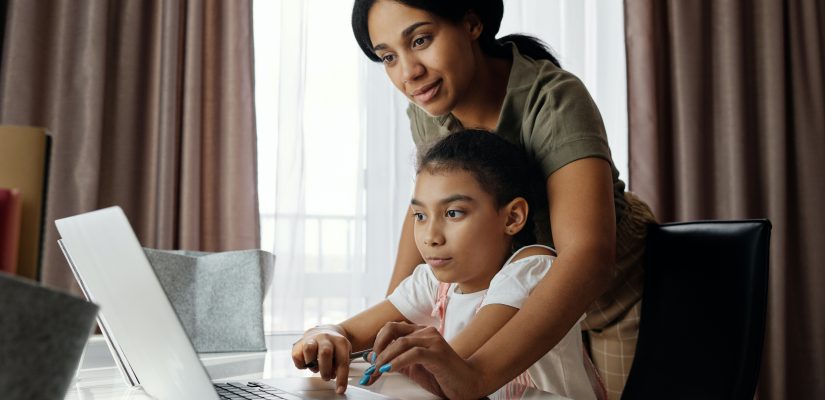
VIRTUAL EDUCATION AMONG CHILDREN AND ITS IMPACTS
“The best education is not given to students; it is drawn out of them.”- Gerald Belcher
It has been close to a year since the widespread of the coronavirus, and has taken lives of millions around the world. While the frontline workers are putting in their best to eradicate this pandemic and save lives a lot of other problems come into the picture starting with employment, depression, work-life balance, rise to conflicts among family members.
With COVID-19 causing widespread school closures, children across the country are being given alternate resources, some online, to study outside of the classroom. Temporary solutions being devised for remote education range from online classroom tools like Google Classroom, to Zoom and podcasts by teachers. While parents are adjusting to this new scenario, during this time it’s also important to help kids stay focused on learning and avoid overuse of games, social media, and videos.
As students’ progress to higher classes in school, they seek more autonomy and intellectual freedom. Online learning can help them pursue highly individualised learning programmes, possibly even at college level. Research suggests that online learning has been shown to increase retention of information, and take less time, meaning the changes coronavirus have caused might be here to stay. These, combined with hands-on exercises, real world exploration, and assessments, can be highly beneficial to their learning progress. they make their way into college. I believe that we must not hold back students from pursuing education online but instead provide them guidance as they navigate through it.
Online learning programmes will also open up opportunities for children from the weaker socioeconomic communities who have limited access to learning resources i.e. teachers, text books and infrastructure. It will connect them to a global network of online learners, exposing them to new perspectives. The ideas that they receive will not be limited by the number of heads in one classroom.
Certain tips for families to follow to adjust to the new reality of learning from home:
• Digital Quarantine: This includes limiting children’s cell phones and tablets until their
schoolwork is done satisfactorily, so that it can receive their undivided attention and also
ensure successful utilization of time.
• Make space for learning: Studies show that children will achieve their best work in a quiet,
comfortable, and dedicated space devoted to learning. Therefore creating a particular spae
for learning would enhance their academic performance.
• Monitor the monitor (computer): In this new learning era, parents can help by monitoring
their children’s levels of interest and engagement in adapting to their new schedule and athome materials. This can be done by observation, wherein parents observe how children
engage in online learning during their online classes.
Online Education for teachers
Online education can also be framed to accommodate a variety of learning styles among students. As teachers, it is likely that they will have to put in additional efforts to incorporate online learning programmes into the curriculum in the most suitable manner.
Online training programmes are helping teachers/educators advance their skills in curriculum implementation, policy, education systems and leadership, both independently and with the support of their institutions. It lets them collaborate with their peers and learn new instructional skills that are relevant to their career. These programmes can help them develop new skills and capabilities in their students with the help of technology and interdisciplinary approaches
Without a doubt, this transition to online learning is a challenging time for parents, teachers, and children alike. Studies show that screen time can have both positive and adverse impacts on kids, and the shift to online education will only increase the child’s time with their devices but parents and elders at home can take an active role towards helping the children overcome the negative impact of increased screen time also help increase their productivity.
Well written vedanth..👏👏
Very nicely articulated and shares some good thoughts on do’s and don’ts.. keep writing in enlightening us on a regular basis
Someone essentially help to make seriously articles I would state. This is the very first time I frequented your web page and thus far? I amazed with the research you made to create this particular publish extraordinary. Fantastic job!